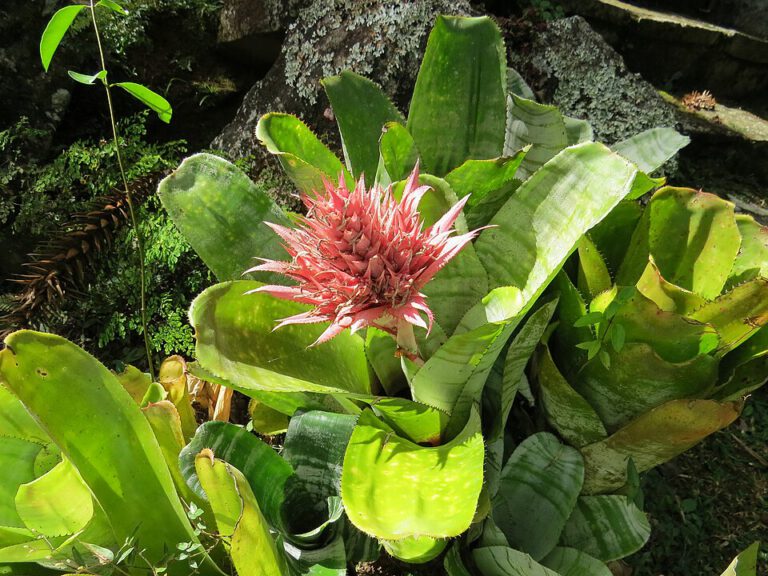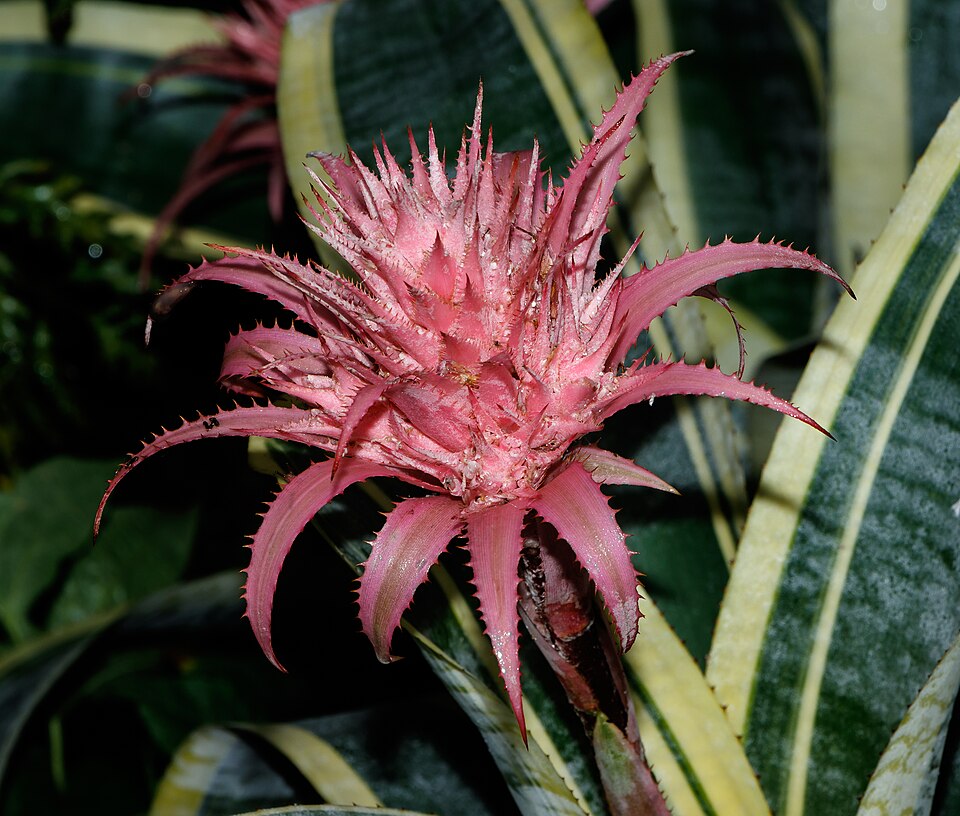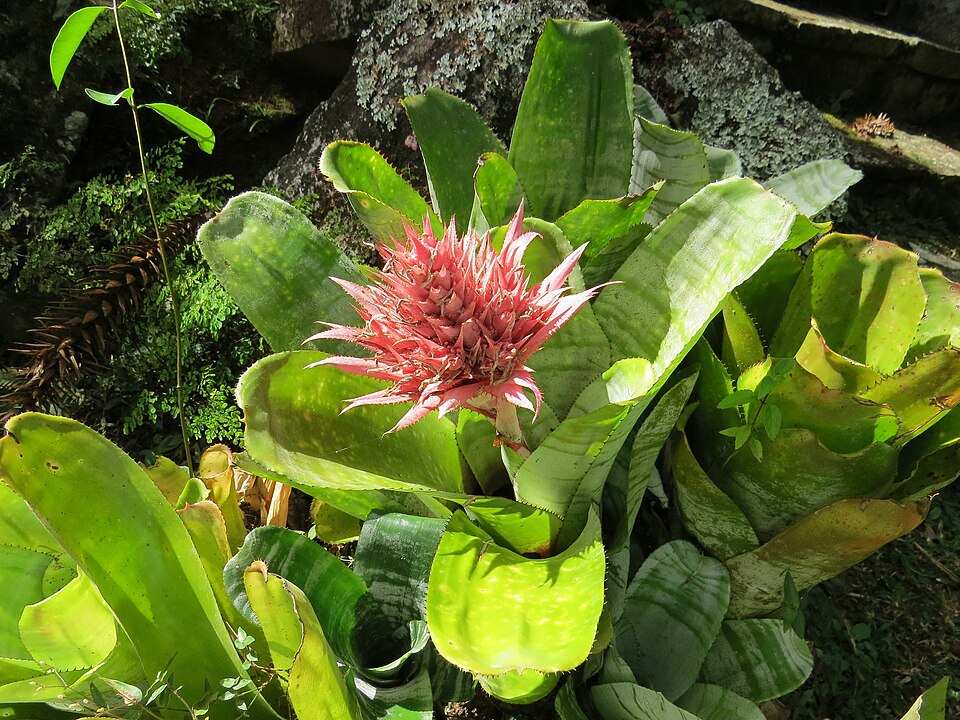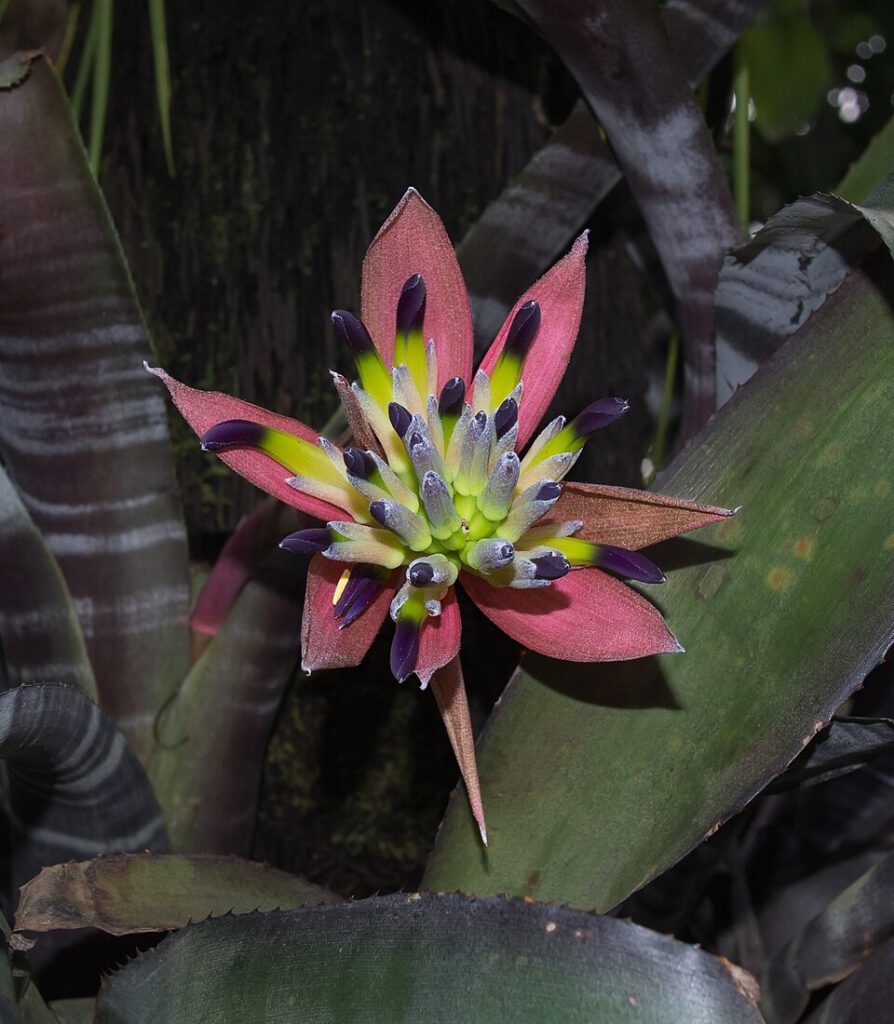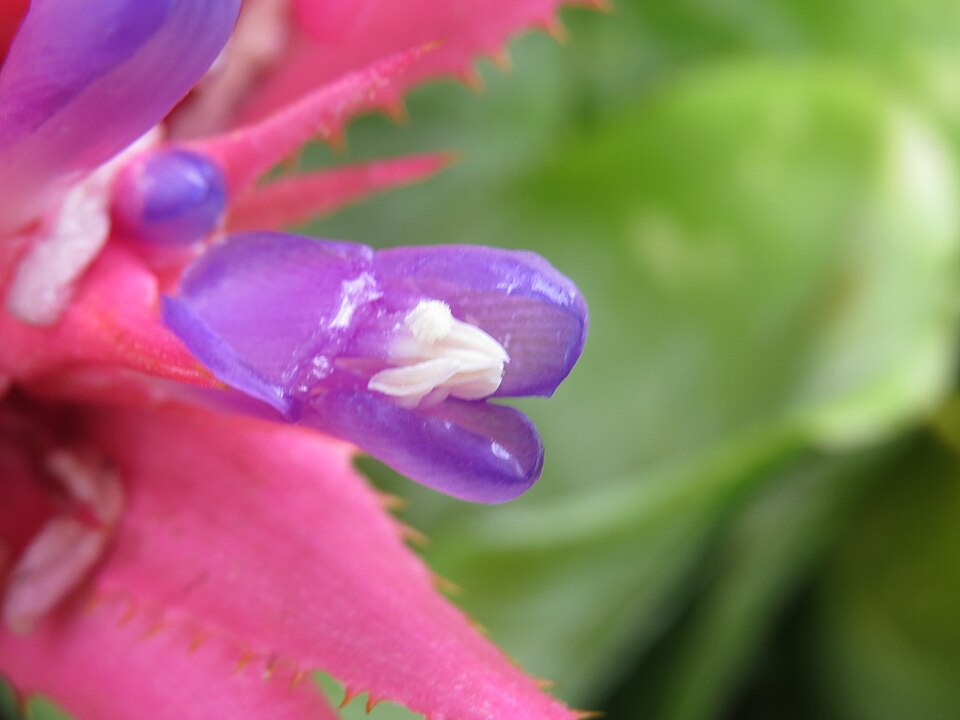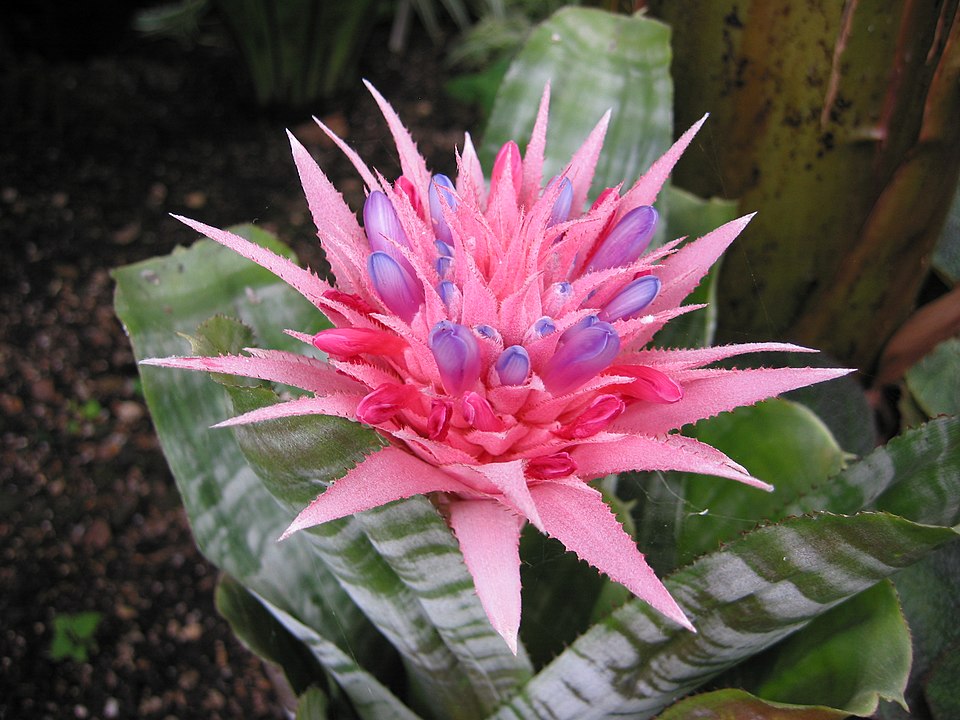The Urn Plant: A Striking Bromeliad for Your Garden or Home
If you’re looking for a plant that makes a bold statement with minimal fuss, the urn plant (Aechmea fasciata) might just catch your eye. This eye-catching bromeliad brings a touch of tropical flair wherever it grows, whether that’s in your living room or your outdoor garden space.
What Makes the Urn Plant Special?
The urn plant gets its common name from its distinctive shape – imagine a living vase with architectural silver-striped leaves arranged in a perfect rosette. But the real showstopper is its flowering display: a stunning pink bract topped with small blue flowers that seems almost too perfect to be real. It’s like nature decided to create its own piece of modern art.
Where Does It Come From?
Originally hailing from the rainforests of Brazil and other parts of South America, Aechmea fasciata has found its way around the world. In the United States, it has established itself in Puerto Rico, where it reproduces naturally and has become part of the local landscape.
Why You Might Want to Grow an Urn Plant
There are several compelling reasons gardeners gravitate toward this bromeliad:
- Stunning visual impact with its architectural form and colorful blooms
- Relatively low-maintenance once you understand its needs
- Excellent for container gardening and indoor spaces
- Long-lasting flowers that can persist for months
- Attracts hummingbirds when grown outdoors
Growing Conditions and Care
The urn plant thrives in USDA zones 10-11, but don’t let that stop you if you live in a cooler climate – it makes an excellent houseplant! Here’s what this bromeliad needs to flourish:
- Light: Bright, indirect light (direct sun can scorch the leaves)
- Temperature: Comfortable in temperatures between 65-80°F
- Humidity: Loves humidity – consider a pebble tray or humidifier indoors
- Soil: Well-draining, slightly acidic potting mix
The Secret to Watering Success
Here’s where the urn plant gets interesting – you don’t just water the soil. Fill the central cup formed by the leaves with water, and keep it topped off. The plant actually absorbs much of its moisture through this reservoir. Water the soil sparingly, only when it feels dry to the touch.
Landscape Design Ideas
The urn plant works beautifully as:
- A dramatic focal point in tropical garden designs
- Container specimens for patios and decks
- Understory plants in shaded garden areas
- Indoor accent plants in bright rooms
- Grouped plantings for maximum visual impact
Consider Native Alternatives
While the urn plant can be a lovely addition to your garden, you might also consider native bromeliads if you’re in areas where they naturally occur. Native plants often require less maintenance, support local wildlife better, and help preserve regional ecosystems. Research what bromeliad species are native to your specific area for the best ecological benefit.
Final Thoughts
The urn plant offers gardeners a chance to grow something truly spectacular with relatively straightforward care requirements. Whether you’re drawn to its architectural beauty, its long-lasting blooms, or its ability to thrive indoors, this bromeliad can make a striking addition to your plant collection. Just remember to keep that central cup filled, provide bright indirect light, and enjoy the tropical vibes it brings to your space.
